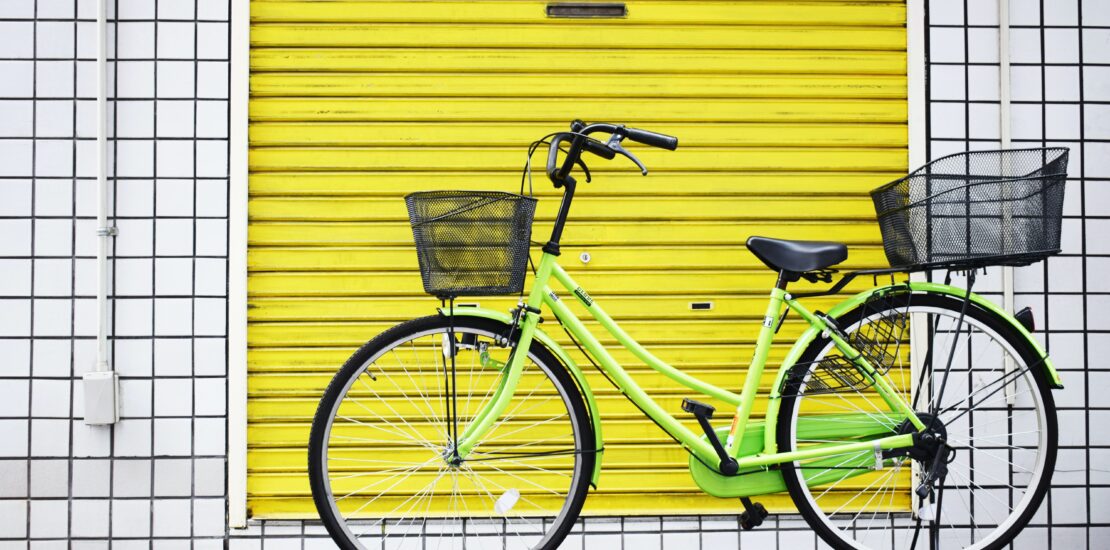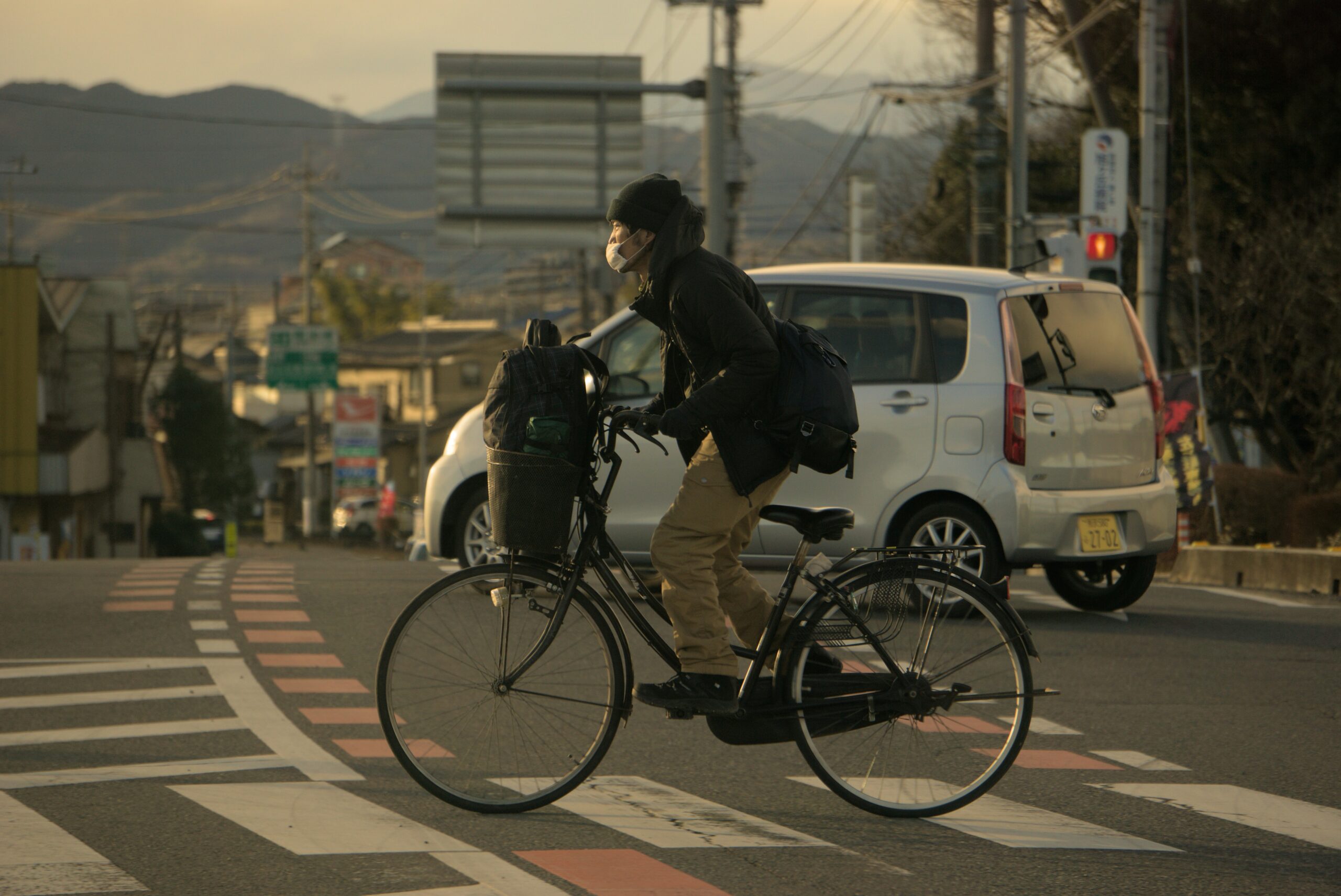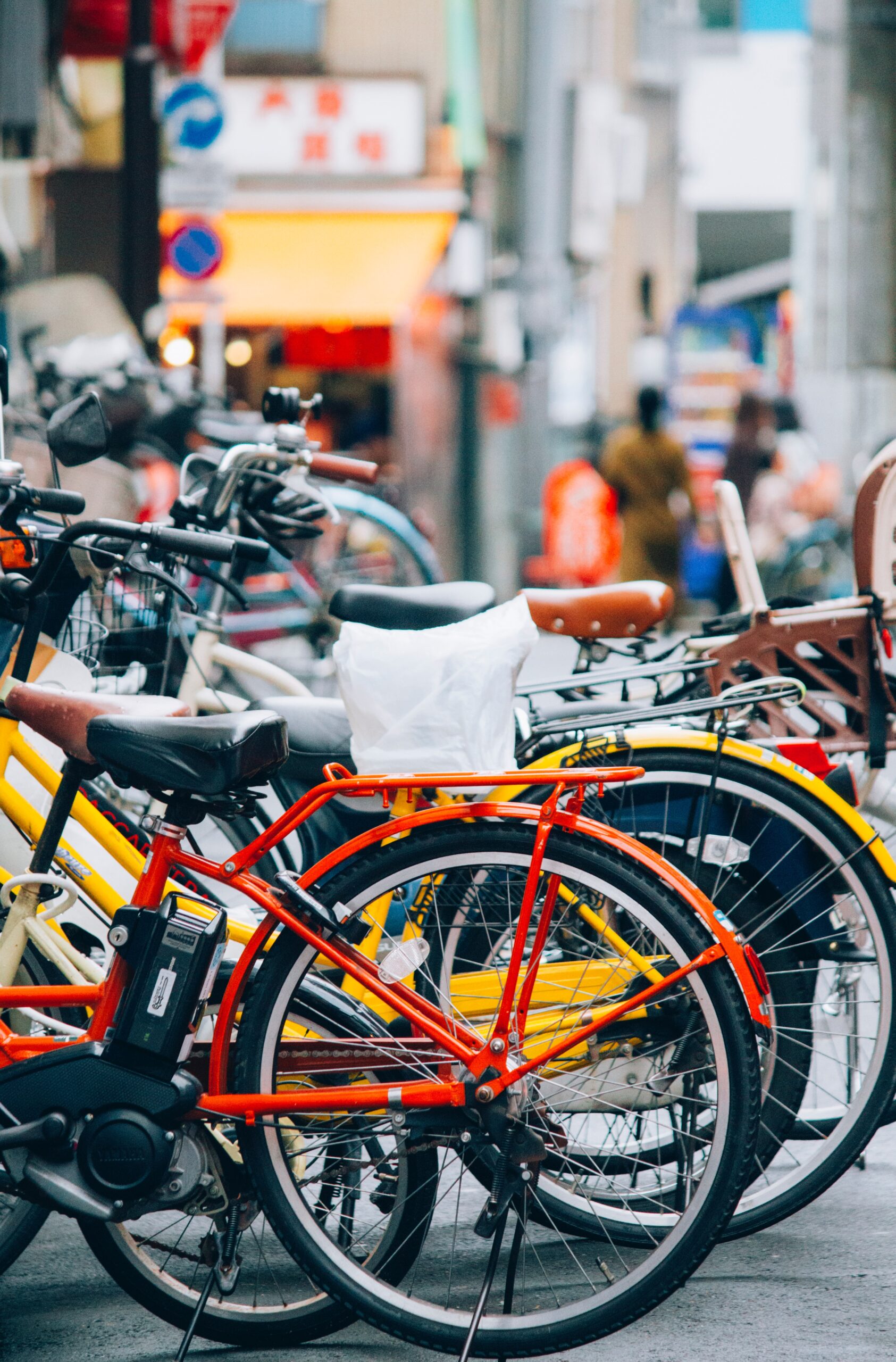Unveil Japan’s cycling scene, blending convenience with strict regulations. Discover anti-theft registration and navigating bike insurance. Learn biking rules, from traffic laws to parking, shaping Japan’s unique cycling culture.

Unlocking Japan’s Cycling Realm: Rules, Registration, and Safety Measures
Bicycles in Japan are ingrained in daily life, ideal for short urban trips and errands, seamlessly integrating cycling with pedestrian activities in public spaces. However, Japan’s cycling culture operates within a framework of strict regulations encompassing registration, licensing, designated parking, and traffic laws. This blend of convenience and rules shapes the unique landscape of cycling in Japan. This article will explore how these regulations influence and define Japan’s cycling culture.
Anti-theft registration
In Japan, the prevention of bicycle theft is taken seriously, leading to a nationwide anti-theft registration system or Jitensha Bohan Toroku (自転車防犯登録). This system mandates the registration of bicycles with local authorities, ensuring a unique identification number for each bike ( A registration sticker will be stuck on your bike). Upon purchase, owners are required to register their bicycles, usually through their local police station or bicycle shops that can assist with online registration platforms. This registration process involves providing personal information and the bike’s details, including make model, and serial number.
Here is what you need to prepare and bring:
- The bicycle itself
- Bicycle warranty or purchasing identification paper
- Personal identification documents
- Registration fee (usually under 1000 JPY)
- Deed of transfer (if the bicycle was previously owned by another person)
The purpose of this system is to deter theft by making it easier to identify and recover stolen bicycles and to discourage the sale and purchase of stolen bikes by creating a traceable ownership record. In case of theft, registered bicycles reported to the police as stolen can be tracked more effectively, increasing the chances of recovery and return to their rightful owners. Failure to register a bicycle can result in fines or penalties in certain jurisdictions, incentivizing compliance with the registration requirements.

Bicycle Insurance
Most cities and prefectures in Japan have made it compulsory to have insurance. Locals can get this at a convenience store. For the traveler, it is harder to arrange bicycle insurance in Japan so you’re better off arranging this at home.
When considering bike insurance in Japan, it’s crucial to understand that typical policies might not cover bike theft or personal injury expenses. Instead, the focus is primarily on third-party liability insurance. This type of coverage protects you if you cause an accident resulting in injury to another person.
Getting bicycle insurance in Japan involves several options depending on your residency status and specific needs. Here are some avenues to explore:
- Local Insurance Providers: Japanese insurance companies offer bicycle insurance. You can inquire about policies directly from these providers. These policies typically cater to residents of Japan.
- Convenience Stores: Some convenience stores in Japan offer insurance services through self-service kiosks. However, these services often require proficiency in Japanese and may necessitate a local address.
- Online Platforms: There are online insurance platforms in Japan that cater to various insurance needs, including bicycle insurance. Some of these platforms might have English interfaces, making it more accessible for non-Japanese speakers.
- Travel Insurance or International Providers: If you’re visiting Japan or staying temporarily, your existing travel insurance might cover bicycle-related incidents. Check your policy details or contact your insurance provider to understand the extent of coverage for bicycle accidents or liabilities in Japan.
- Specialty Bicycle Shops: Occasionally, specialty bicycle shops might assist in facilitating insurance for the bikes they sell. This can vary based on the shop and the services they offer.

Bicycle Parking
There are both cost-free and budget-friendly bicycle parking options near stations and shopping districts. Some facilities charge hourly fees for sidewalk racks, while others utilize ticketed garage-style lots or automated underground storage systems.
Illegally parked bicycles are deemed ‘abandoned’ and may be removed from crowded areas. To reclaim your bicycle, you must visit the impound lot, often situated in inconvenient locations, and pay a fine to retrieve your bicycle before it’s disposed of.

Bicycling Rules
Bicycles being a very common mode of transportation, there are several rules and regulations governing their use:
- Traffic Laws: Bicycles are considered vehicles under Japanese law. Cyclists must adhere to traffic laws, including obeying traffic signals, stopping at red lights, yielding to pedestrians at crosswalks, and riding on the left side of the road. When making a right turn at large intersections, follow pedestrian crosswalk signals. Do not cut across the intersection diagonally.
- Lights and Reflectors: Riding a bicycle at night requires proper lighting. Bicycles must have front and rear lights and reflectors to ensure visibility, enhancing safety during low-light conditions.
- Sidewalk Riding: In many areas, cyclists are allowed to ride on sidewalks. However, there might be designated areas where sidewalk riding is prohibited. It’s essential to be aware of local regulations regarding sidewalk usage for bicycles.
- Parking: Parking bicycles in unauthorized areas, obstructing pedestrian paths, or leaving them unattended for extended periods in certain locations might result in fines or having the bike removed by authorities.
- Helmet Regulations: While there’s no nationwide law mandating helmet use for adults, some regions have rules requiring children under a certain age (usually 13) to wear helmets when riding bicycles.
- Bicycle Sharing: Two-on-one biking is permitted only for riders over the age of 16 carrying children under the age of 6 on a special bicycle with a designated child seat. Cycle in single-file when in a group, not side-by-side.
- Alcohol Consumption: Similar to driving a motor vehicle, riding a bicycle under the influence of alcohol is against the law in Japan and can lead to penalties or fines. Using your phone or listening to music while riding is also forbidden.



